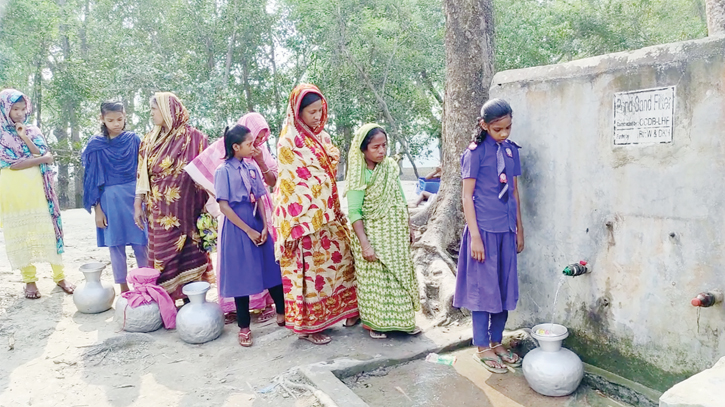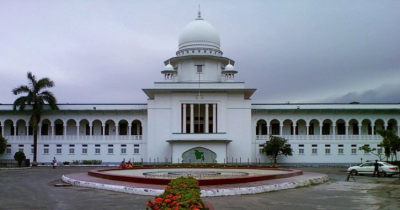
Photo : Messenger
The increasing salinity in Satkhira's coastal region has resulted in the depletion of freshwater sources, exacerbating the existing severe shortage of drinkable water. This crisis, a direct outcome of climate change, is not only impacting the daily lives of the local population but is also significantly hindering children's education.
Ayesha, a 10-year-old student who had to discontinue her education two years ago, is a poignant example of this effect. Instead of attending classes, she now shoulders the responsibility of fetching water for her family, often braving challenging terrains and rivers. Her story is not unique; thousands of children in the Satkhira coast are forced to miss school every day as they search for water, leading to a high dropout rate before completing primary education.
The journey to collect water is difficult, involving treacherous paths and, at times, navigating rivers. This struggle has made education an irregular affair for many children. Ayesha Khatun, a student from Burigoalini Union in Satkhira Shyamnagar, shared her plight, "I have studied up to class three. My education has been on hold for two years. I have two younger brothers. My mother can't manage them alone. I have to come because I can fetch water." The lack of clean water forces many girls like Ayesha to prioritize fetching water over attending school.
The situation is dire, with families spending a significant portion of their income on clean water or dedicating substantial time to collecting it for free. This has led to a rise in children being sent to fetch water instead of attending school.
Parents like Sonia Begum are caught in a difficult situation, often fetching water themselves to ensure their children can go to school on time. However, the time spent collecting water often leads to children going to school without eating.
An examination of student attendance data from schools in the Satkhira coast reveals a stark decline in attendance during the dry season compared to the monsoon season. Umm Taslima Yasmin, the headteacher of Burigoalini School, highlighted the issue, stating that students often arrive late or miss school entirely due to water collection duties, leading to a growing disinterest in education and increased dropout rates.
Najma Akhter, a program officer at Uttaran, a non-governmental organization, reported a 30% dropout rate in Shyamnagar Upazila, with children often opting out of school to engage in water collection and other activities. The situation is further compounded by the long queues for potable water, which children often join, leading to frequent school absences.
In response, the government has initiated several plans to address the freshwater shortage. These include expanding natural freshwater reservoirs, installing tube wells in areas with accessible freshwater, and distributing water tanks to households for rainwater harvesting. Efforts are also underway to dig area-specific ponds and promote rainwater conservation to mitigate the crisis. Additionally, the government is providing stipends to prevent dropout among vulnerable students.
Despite these measures, the issue remains critical, with the water crisis significantly impacting children's education and prospects. The situation in Satkhira serves as a stark reminder of the far-reaching consequences of climate change and the urgent need for sustainable solutions to ensure access to clean water and preserve the right to education for all.
Messenger/Fameema








